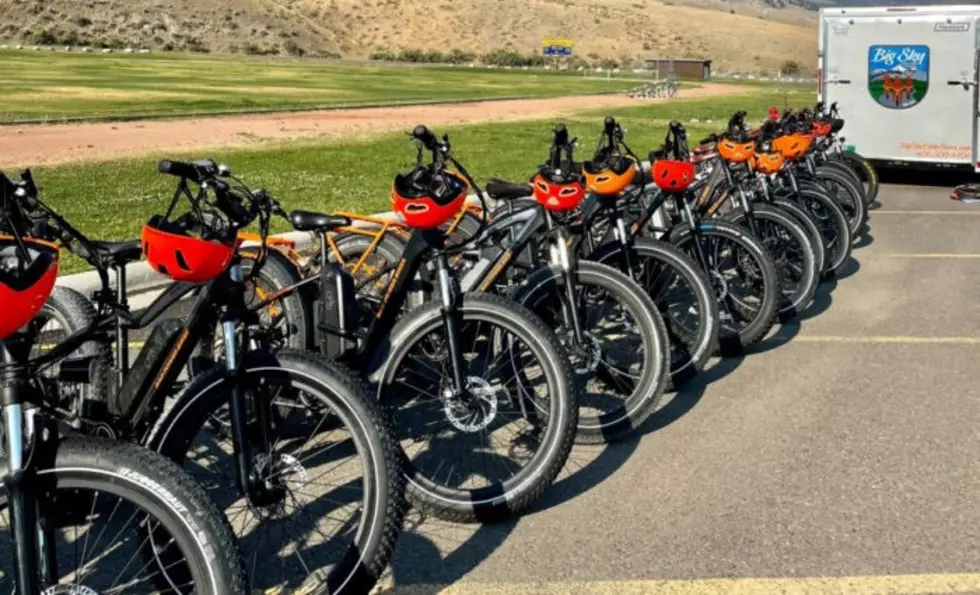
City Council candidate questionnaire: Ward 1 Eric Melson
The Missoula Current sent a candidate questionnaire to all City Council candidates ahead of the General Election in November. Below is the response from Ward 1 council candidate Eric Melson.
1. While this is a non-partisan race, how do you align politically?
I’ve earned the endorsements from Montana Conservation Voters, Missoula Area Central Labor Council, Planned Parenthood Advocates of Montana and Missoula County Democrats.
2. What do you see as the top issues facing the city at this point in time?
The issues that I hear most often when talking with neighbors are affordability, property tax increases and homelessness.
3. What would you bring to the table to resolve your top issues?
In my current role, I organize and facilitate public stakeholder meetings around transitioning economies. I listen to people of all backgrounds and lived experiences about the vision they have for their community. I create plans built from a shared vision that elected officials can act on to move their community forward and away from sunsetting industries.
I’ve heard across Ward 1 a lot of concerns about the direction Missoula is heading, especially from people who have lived here for a long time. It’s become more difficult to afford to live in Missoula for a number of factors. The connection between increasing property taxes and a high cost of living is obvious.
Property taxes play a direct role in affordability, they also ensure adequate and equitable funding for our public schools and local government services, like public safety. Recently we’ve seen a massive shift in where the state has chosen to source those tax dollars, placing an increasingly heavy burden on residential property owners while cutting taxes for businesses and centrally-assessed properties like pipelines and railroads.
I’m interested in working on reforming this lopsided tax system because restoring the balance will help folks on fixed incomes, renters and homeowners alike while potentially providing more revenue for local governments and schools. I’ve worked directly on taxation in Montana having been part a coalition that passed two state-wide ballot initiatives in 2020.
I worked with Gov. Bullock to find creative ways to increase funding for Montana’s State Park system through the state legislature. I anticipate using my experience working in coalitions to partner with other cities and counties who seek systematic change. I think increasing taxes even have an effect on our most vulnerable.
Homelessness is a national issue created from decades of underfunding from the federal and state levels on down to the local level. Realistically, I don’t think local government can solve homelessness without support and resources from our state and federal partners.
4. Do you support funding police and fire, and how would you help them gain the resources they need to do their job?
Public Safety is a major priority for local government, and I support funding for our police and fire services, especially the efforts to diversify our emergency response teams to provide crisis-trained responders in scenarios where de-escalation is proven to save lives.
We currently have two of these programs in operation, the Mobile Support Team, which is housed within the Fire Department, and the Crisis Intervention Team, which is housed within the Police Department. These teams go through rigorous trainings that include: de-escalation techniques, self-compassionate responses, Native American cultural awareness training, an LGBTQ+ training, family perspectives and dynamics training, suicidal risk assessment and safety planning.
I would like to see both the Mobile Support Team and the Crisis Intervention Team expanded and fully resourced, which I think is a proactive strategy to reduce law enforcement’s role in responding to calls where an armed police officer is unnecessary. It is unfortunate that the fire levy was removed from the ballot this fall because it contained more funding for the Mobile Support Team.
It was unfortunate to see the Crisis Services Levy fail last cycle, I was involved in that campaign, and I think we’re starting to see the effects of what not investing in these programs has on public safety.
5. In what way do you support local businesses, both big and small?
Ward 1 is fortunate to have the Heart of Missoula neighborhood (downtown) which contains so many incredible businesses of all scales and sectors. One thing I’m excited to potentially work on is implementing the RISE grant the City recently received.
This will help make progress on several key items in the Downtown Masterplan, including improved circulation and access to downtown businesses for multi-modalities – bus, walk, bike, drive, ADA accessibility...while also improving the safety of our downtown streets and connecting and expanding bike lanes to parks and to the river.
Another way I think about supporting local businesses is through our regulatory frameworks. We’ve known for a while that our current code is in need a of a refresh. Code and zoning reform is a generational change that should, in practice, increase efficiencies for businesses seeking permits.
6. The city is facing a budget crisis. How would you address it?
I think it’s important to be honest, upfront and transparent about our budget challenges. There are a lot of competing dynamics in the budget, and we need to take into account macroeconomic forces like inflation, which the city has no control over, is a driving factor behind our need to increase taxes.
There are other factors like wages that go up every year and cost-of-living increases with our collective bargaining agreements we need to honor – these are good things that retain a skilled workforce and provide a livable wage for city operations. But, we are also looking at a potential $4MM gap in funding for FY24-25 from federal money we accepted during the pandemic and propped up programs with.
I think council will need to have tough conversations around priority-based budgeting and come to terms with how we continue to deliver services at the level and quality we do now.
7. What areas would you cut to help the city balance its budget next fiscal year?
I would look first at outsourced services like consulting fees and assess the return on those investments as a first step to scale back spending. If we can bring projects in-house to avoid consulting fees, I’d anticipate we could save a little here and there. An example that comes to mind is our lobbying contract. I think we could possibly gain efficiencies and effectiveness by bringing those dollars in-house and incorporating that role into one of our existing departments.
8. How would you help address homelessness, and how does personal accountability come into play?
Homelessness is an incredibly difficult, complicated and complex issue that local governments (across the US) struggle to mitigate without support from state and federal governments. We are doing what we can with the tools we have to mitigate the impacts of homelessness to neighborhoods, parks, trails, residents and visitors and help our most vulnerable to get back on their feet to the best of our ability.
But decades of underfunding has left us in a position some have called ‘compassionate conflict’ - our community wants to help our most vulnerable the best we can with the resources we have, but we’re struggling to make progress without resources and support from state and federal partners. As for personal accountability, I think we should consider bolstering job skills training programs, addiction services programs, mental health services and permanent housing as pathways to help community members that are struggling with stability.
Two city-supported affordable housing developments just opened with 30 units reserved for folks who face chronic homelessness. I think that is an incredible achievement and we need to think about creative financing options and working with our private sector partners to replicate that success and generate more permanent housing opportunities to help provide stability.
9. How can the City of Missoula play a stronger role in supporting businesses and growing jobs?
I think the City’s investment and partnerships with workforce and economic development groups like Missoula Economic Partnership can help create conditions where businesses and workers thrive. For a while, MEP was focused on recruiting and developing higher wage jobs in the tech sector, but that focus has shifted to employment in the clean energy sector with a recent successful Good Jobs, Great Cities grant. That grant will help empower more women to enter Montana’s clean energy workforce thanks to the partnership with Mountain Home Montana.
10. How would you support housing development in Missoula without turning to subsidies like the Affordable Housing Trust Fund?
I think zoning and code reform are where we will see the biggest impacts to create more housing at all levels and in all neighborhoods in Missoula. An example of this is that we drafted and adopted our growth policy before undergoing zoning and code reform, meaning if a builder wants to develop a multiplex in an area with incompatible zoning, they have to apply for and fight to get the parcel re-zoned, which can be a financial and time barrier for developers interested in supplying more affordable units.
To me, zoning is about envisioning our future – what do we want our community look and live like 10 years from now? What attributes do we need and want for our community as we grow? Of course, there is the regulatory side of zoning that requires compatibility too – how do changes to zoning interact with subdivision regulations, sewer and wastewater regulations?
We’re about a year into updating our zoning policies now, and I think a tangible outcome will be gaining efficiencies and distributing the development load equitably across all neighborhoods and not continuing to focus intense development in areas that are already struggling from it.
I also think basic infrastructure improvements need to keep pace with housing developments. Take the Northside for example – the Villaggio is opening and 400 new residents will be living off of Scott St. but there were no improvements to roads, sidewalks, bike lanes, etc. to match the increase in density and to assist moving those residents around safely.
As we grow, we’re approving and adding 6-700 units annually, but in some cases housing is coming before basic infrastructure and we can be smarter about development patterns and order of operations.






